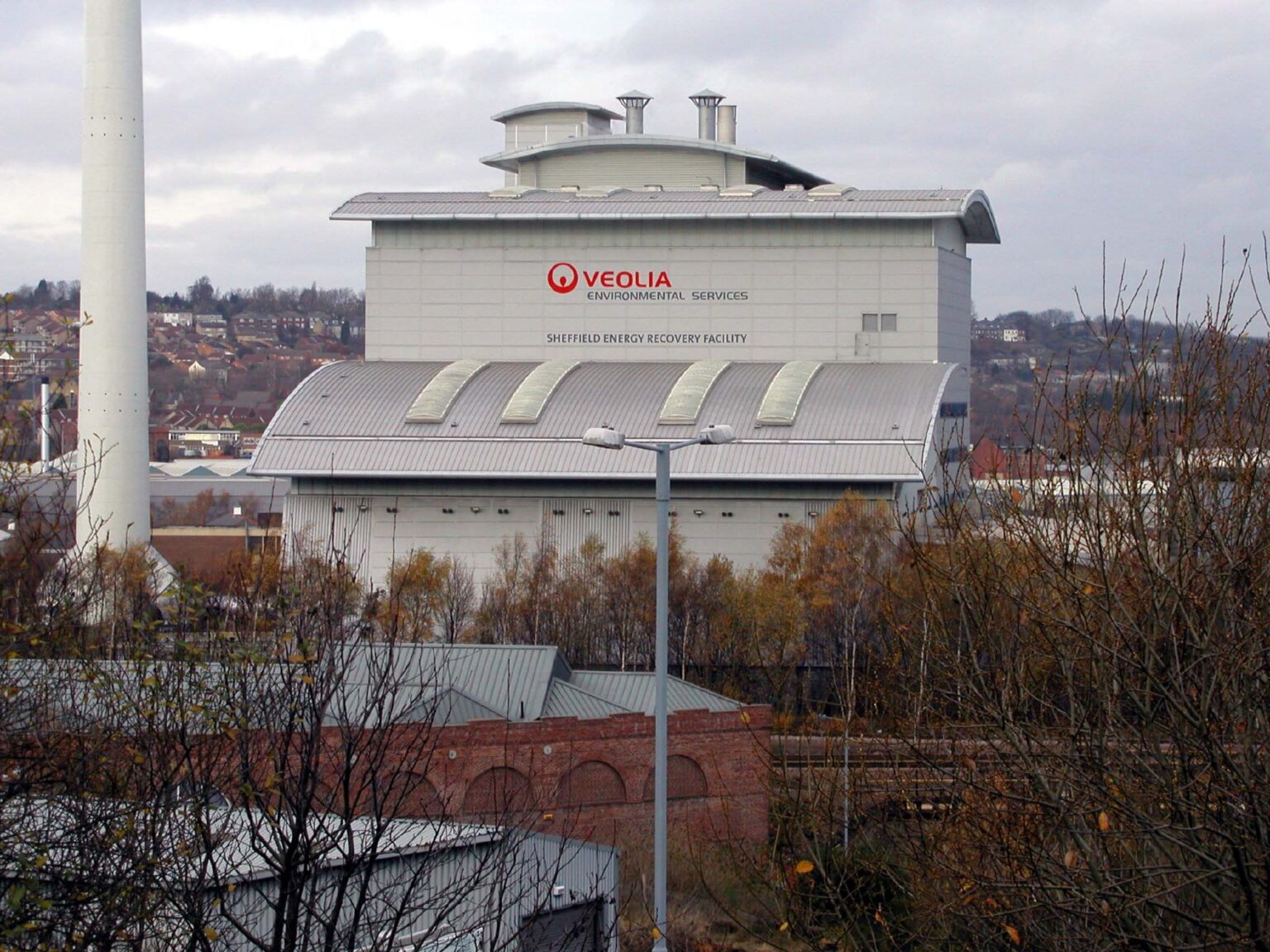A trade association representing petroleum companies and a controversy-ridden waste management firm are sponsoring dinners at this year’s Society of Environmental Journalists (SEJ) conference, DeSmog can reveal.
The agenda for the conference, which is being hosted in Boise, Idaho, shows that the Western States Petroleum Association (WSPA) and the waste management company Veolia North America are sponsoring two of the “beat dinners” hosted on Friday, April 21 — the third day of the event.
The SEJ is a 1,500-strong membership organization dedicated to “more and better coverage of environment-related issues.” Attendees have a choice of nearly a dozen beat dinners on April 21, each of which acts as a chance to discuss a particular environmental or journalistic issue.
The WSPA’s description of its dinner says that “nothing is off the table” — adding that “we want to hear from you and answer any questions you may have about the oil and gas industry’s role in the energy transition.”
The WSPA describes itself as the oldest petroleum trade association in the United States, founded in 1907 and representing petroleum companies in the five western states of Arizona, California, Nevada, Oregon, and Washington. WSPA’s membership has included some of the largest oil, pipeline, and energy companies in the United States, including BP, Chevron, ConocoPhillips, ExxonMobil, Marathon Oil, Shell, and Valero. It is also active in political lobbying, spending a total of $17.5 million lobbying California legislators and officials over the past three years.
Of the states WSPA represents, California produces the most crude oil by far. Records show that the company has lobbied during the past three years on California’s climate strategy, toxicity provisions, low carbon fuel standards, as well as its oil and gas production policies.
In response to questions from DeSmog, Kevin Slagle, the vice president of strategic communications for WSPA, explained that the association regularly works with some of SEJ’s journalist members and saw the informal and intimate atmosphere of a Beat Dinner “as a good opportunity to continue to build relationships, with a full understanding that perhaps our points of view might be different on things,” including the fact that the fossil fuel industry is “viewed as a problem when it comes to a lot of issues that are written about.”
But WSPA and Veolia’s involvement in the SEJ conference has attracted concern from journalists and campaigners. “There’s no excuse for these sorts of conflicts of interest,” said Jamie Henn of the campaign and communications group Fossil Free Media. “By letting the fossil fuel industry sponsor events, groups like SEJ lend credibility to bad actors” that are attempting to “influence coverage and maintain their social license by pretending to be well-meaning supporters of the free press.”
“I can understand there’s strong feelings about our industry, but I think it’s too bad that we can’t just sit down and talk,” Slagle said in response, adding that “a dinner is not going to influence a professional reporter one way or the other. This is about an opportunity to talk.”
The Veolia dinner is similarly advertised as an chance to “talk with our experts about the innovative ways we’re tackling the biggest environmental problems.” The pitch for the dinner adds that, “Americans are worried about climate change, but also believe there’s still time to reverse impacts. To get there, industries need to lead the way with innovative technologies and solutions.”
Mary Grant of the Public Water for All, a clean water campaign group, said that, “Veolia, the world’s largest water privatization corporation, has a terrible track record running water and wastewater systems. The company should not be given a stage to greenwash and bluewash its bad record.”
Veolia is a French company that operates in 58 countries worldwide, primarily in the water, waste, and energy sectors. The firm says that it “aims to be the benchmark company for ecological transformation” by managing complex environmental waste issues. However, the company works with many polluting industries, including the oil and gas industry, dealing with the waste produced by this sector and “optimizing asset performance.” The firm’s spokesperson said that Veolia helps polluting companies to improve their environmental performance. Veolia generated revenues of $47 billion in 2022, an increase of 50 percent from the year before, which was partly explained by the takeover of its rival Suez.
Veolia spokesperson Adam Lisberg told DeSmog that the firm is not widely known in the United States and that it seeks to communicate directly with the media to build its reputation — and that it welcomes journalists challenging the firm at its SEJ dinner. Lisberg stressed that Veolia is a fundamentally different type of organization to the WSPA.
“Veolia tackles complex environmental issues all over the world, and we are proud of our record in protecting the world’s resources by remediating hazardous situations, reducing energy consumption and greenhouse gas emissions, and improving water quality,” he said. “We hope that by sponsoring one of the Beat Dinners at the Society of Environmental Journalists’ annual conference, we can introduce ourselves to journalists covering these issues, explain our experience in accomplishing environmental goals across the country and serve as a resource for their reporting.”
The sponsors of the other beat dinners are predominantly non-profit organizations. For example, the Wilderness Society, a land conservation NGO, is sponsoring a dinner on the process of investigative reporting.
“Do I like the idea of oil and gas groups and Big Water funding dinner events around town that are listed in the conference agenda? No,” said the energy and environment reporter and SEJ member Peter Fairley. He added, however, that he did like the fact that “the sponsorship is transparent.”
Water Crises
Veolia was embroiled in the water crisis in Flint, Michigan, where the city’s drinking water was contaminated with lead. Nearly 100,000 people, including 12,000 children, were exposed to water with high levels of lead in 2014 and 2015, placing them at risk of adverse health impacts, including an increased risk of dementia. A Cornell University report last year concluded that “there was a substantial uptick in negative health outcomes among Flint children following the water crisis.”
Veolia was hired by the city in February 2015 to help address local water issues. Email exchanges between Veolia executives and city contractors exposed by The Guardian show that senior employees at the firm were aware that lead could be leaching into drinking water, yet the firm produced a report and a public presentation stating that the water was safe to be consumed.
The firm maintains that it was not provided with adequate data from city officials to conclude that lead was a problem. A further investigation by Detroit News found that Veolia launched an “ad blitz” — tripling the number of keyword searches it bought on Google — in late 2021 and early 2022, when the company was facing a civil lawsuit trial for its role in the crisis.
“The people of Flint were victimized by government officials who made all the decisions leading to their water crisis. The first bellwether trial involving Veolia North America ended with a mistrial in August 2022,” Lisberg said. “We have made very clear that we were wrongly blamed for what happened in Flint, and the First Amendment right to free speech allows us to do so publicly.”
Veolia has been involved in a number of other environmental controversies in recent years in the United States and abroad. The company was fined $3 million in October 2019 for violations related to a water treatment center in the city of Heavener, Oklahoma — at the time the largest drinking water fine ever levied by the state’s Department of Environmental Quality (DEQ). Veolia said that it had inherited “numerous operational challenges, especially a damaged computer monitoring system” when it assumed control of the treatment center from the city council.
Veolia was also embroiled in a lead contamination scandal in Pittsburgh, Pennsylvania, where tests in 2016 found that lead levels in the city’s drinking water had exceeded federal standards for the first time on record. The firm once again denied responsibility, refuting accusations that cost cutting resulted in weaker measures to prevent the corrosion of pipes (corroding pipes can leach lead into the water supply).
The company said that it was “shocked” by the fine issued by Okalahoma’s DEQ, and that it “stands behind its work in Pittsburgh.”
Further afield, the company has been accused in the UK of diverting recycling material for incineration, with a trade union in Sheffield and refuse worker in Brighton claiming that the firm diverted substantial amounts of recyclable waste for incineration. The firm insists that the claims are false and that only contaminated material is incinerated.
Veolia is also one of the listed sponsors of this year’s SEJ Conference Diversity Travel Fellowships, which support the travel, registration, and accommodation costs of individuals from disadvantaged and marginalized backgrounds. Slagle of WSPA said the association is also sponsoring one of the fellowships. The standard cost of registering for the conference is $375 for members and $800 for non-members who are affiliated with an organization with an annual budget of less than $2 million.
In response to questions regarding Veolia’s sponsorship of the beat dinner, Luke Runyon, president of the Society of Environmental Journalists’ board of directors, told DeSmog that, “No donor, sponsor, funder, or exhibitor has any role in determining SEJ editorial content or decisions, including programs, publications, and organizational priorities. We ensure that all funding sources are fully disclosed and all sponsorships are clearly identified for any conference attendee or member to see.”
Subscribe to our newsletter
Stay up to date with DeSmog news and alerts






